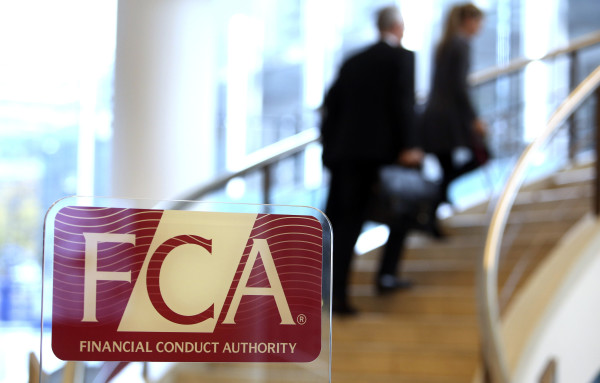

The Financial Conduct Authority has been told to compensate 50 per cent of a consumer's investment losses, after the Complaints Commissioner found "seriously inaccurate" entries on the regulator's register.
In a decision published yesterday (May 7) the Complaints Commissioner found the "failures of the regulator have been a facilitator to criminal activity" which contributed to the loss of a consumer's investment to fraud.
The commissioner partially upheld a complaint in which a consumer contacted the FCA's customer contact centre in May 2018 to confirm if a company they wished to invest with was a regulated entity.
The company appeared on the FCA register but the associate in the contact centre also clarified with the consumer that the business was based in Austria and had passported into the UK.
The associate explained the home regulator for the firm in question would therefore be the Austrian regulator and advised the consumer to get in touch to ask what permissions the company held and what products it was authorised for.
Despite calling the Austrian regulator the consumer did not wait for a reply before investing £13,000 with the company, which transpired to have been cloned by fraudsters.
The consumer lost the entirety of the investment and sought compensation from the FCA, claiming the regulator had confirmed the firm was legitimate based on its registration number.
Whilst the Complaints Commissioner was satisfied the FCA associate had acted correctly in recommending the consumer contact the Austrian regulator, it found two "serious errors" had been made by the regulator's predecessor, the Financial Services Authority, which contributed to the loss of the investment.
The commissioner found the Austrian regulator had notified the FSA of the firm's intention to passport into the UK in 2005, but the UK regulator registered the name of the company in the wrong order.
In 2006 the Austrian authorities notified the FSA that the passport should be revoked, but instead of de-registering the firm the FSA registered it under its correct title - therefore creating two registered passport firms when "there should have been none".
In June 2018 the commissioner found concerns about cloning began to emerge and in July 2018 an alert was issued by the FCA and the second of the firms was deregistered.
In February 2019 the duplicate entry was discovered and was also deregistered.
The commissioner said: "There were therefore two serious errors made by the FSA: the firm was registered under the wrong name in 2005; and in 2006, instead of being deregistered, a second entry, under the correct name, was made."
He added: "The FCA register entry for this firm was seriously inaccurate. If it had been deregistered in 2006, you might not have lost your investment in the way you did."
Antony Townsend, the ruling complaints commissioner, said this was not the first time he had dealt with a case showing "inaccurate or misleading" information, upholding a complaint in June 2018 in which a clone firm was able to take advantage of the FCA's "woefully inaccurate" register.
In the previous case the complainant had checked the register before investing and "convinced themselves the company was authorised", an error the FCA accepted might have led to the consumer choosing not to invest if the register had been accurate.
Mr Townsend held that whilst the associate at the FCA call centre had given good advice and the consumer should have waited for a reply from the Austrian authority before investing, the failings of the regulator had still contributed to the loss and therefore recommended the City-watchdog pay compensation.
He said: "I have to weigh the fact that the FSA made two serious errors; that had the firm not been erroneously shown on the FCA’s register it could not have been cloned in the way it was; and that the FCA complaints team did not uncover the extent of the regulatory failings.
"While it is understandable that the FCA should be protected from general liability for consumers’ losses, this is not an ordinary case.
"The FCA (and the FSA before it) for twelve years showed a deauthorised Austrian company as registered despite having information that it should not be.
"Although the FCA cannot be held responsible for the criminal behaviour of others, the FSA’s serious failings contributed to your financial loss.
"While I do not consider that the FCA should be held responsible for the totality of your loss, in my preliminary report I recommended that it should make an ex gratia payment to you of 50 per cent of your loss."
The FCA argued in response to the recommendation that, as a public body, it has no obligation, in general law or under the Financial Services and Markets Act 2000, to compensate consumers for errors under the register and the "direct cause" of the complainant's loss was her own actions.
However, the complaints commissioner did not agree with the regulator's argument, accepting there should not be a "general warranty" for the accuracy of the register but finding the FCA’s failings in this case with respect of the register were "unusually serious and significant".
The complaints commissioner said he was aware the FCA had now taken steps to provide further training to call associates in its complaints centre on handling these issues.
rachel.addison@ft.com
What do you think about the issues raised by this story? Email us on fa.letters@ft.com to let us know.



